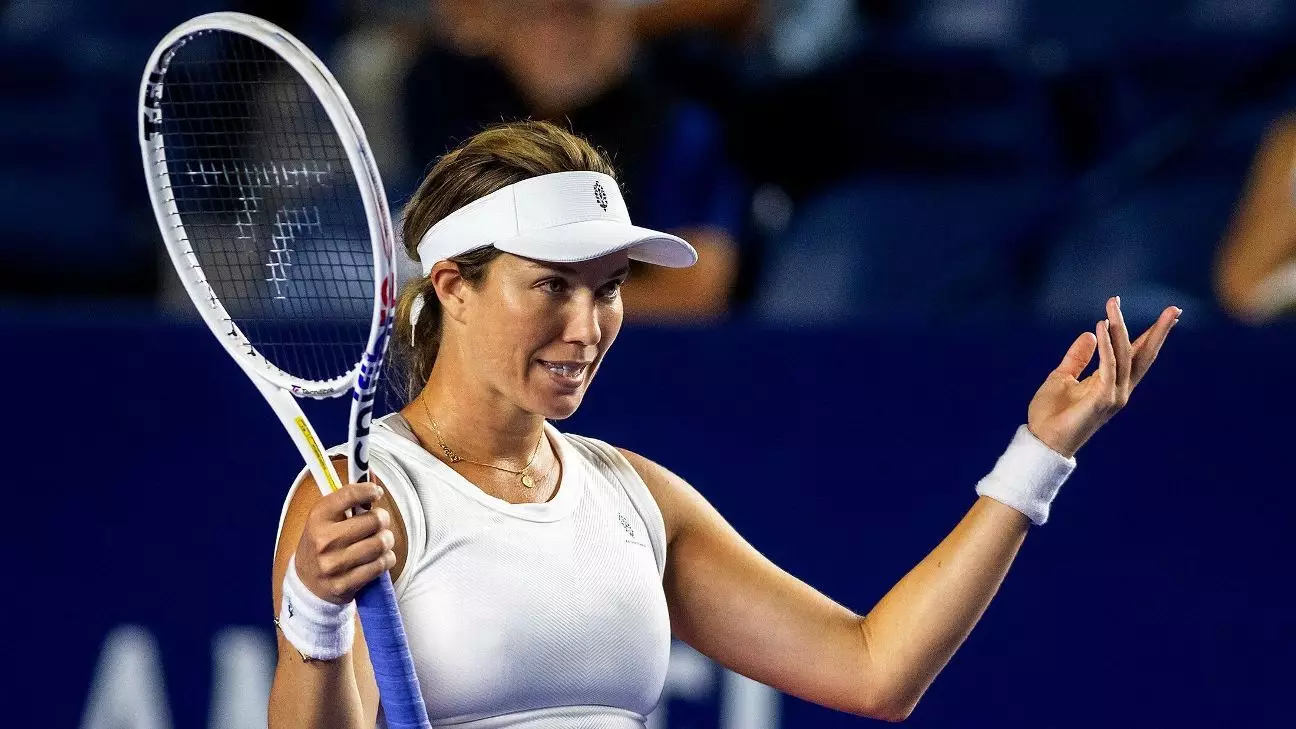In a surprising turn of events, American tennis star Danielle Collins announced her intention to return to the WTA Tour in 2025, a decision that emerges from a complex web of personal, professional, and health-related challenges. Just nine months prior, Collins had declared that she would retire at the end of the 2024 season, leaving many to celebrate her illustrious career while mourning an early end.
Facing Health Challenges and Making Life Choices
Collins, currently ranked No. 9 in the world, revealed that her ongoing battle with endometriosis—a condition that creates significant complications related to reproductive health—prompted her to reconsider her retirement. In her heartfelt Instagram message, she stated, “Things have not gone to plan,” indicating that her journey towards exploring options for motherhood had not moved in the direction she anticipated.
The implications of endometriosis extend far beyond the physical; the emotional dichotomy faced by many women dealing with fertility can be overwhelming. By sharing her experiences, Collins not only sheds light on her personal struggles but also brings awareness to the myriad challenges faced by women athletes. Her confession reflects a broader societal issue that demands recognition and understanding, especially in a sport often revered for its intensity and physical prowess.
Collins’s initial decision to step away from the sport was fueled by her desire to focus on family formation, a dream many aspire to achieve. However, rather than viewing the past nine months as a time lost, she appears to embrace the uncertainty as part of her broader narrative. “Dealing with endometriosis and fertility is a massive challenge for many women,” she wrote, displaying her commitment to facing these issues head-on while remaining hopeful for her future.
This re-evaluation of retirement comes in the wake of triumphs on the court. Despite her stated intention to retire, Collins enjoyed a remarkably successful 2024 season, culminating in significant victories, including her first title at the prestigious Miami Open. Life in professional sports can often mirror a rollercoaster; an athlete’s decision to retire is frequently clouded by victories or defeats in personal circumstances just as much as in competition.
When Collins first announced her retirement intention, she emphasized the importance of going out on her own terms. “I want to go out really playing on a high level, and I want people to remember me for the tennis that I was playing,” she stated. This sentiment is particularly poignant, as many athletes find their journeys defined by injuries or unexpected falls from grace. Collins’s assertion prioritizes personal agency, a refreshing narrative in a field where many feel trapped by circumstances beyond their control.
With the resounding successes earlier in her career and her status among tennis’s elite rankings, Collins’s voice becomes increasingly significant in discussions about female athletes and their choices. Acknowledging the emotional toll that public scrutiny can exert, she opted to skip a routine farewell ceremony at the US Open, preferring to retain the attention on her sport rather than her imminent departure. Her actions underline a desire for authenticity and control in a sport that can often prioritize spectacle over substance.
As Collins looks toward 2025, her announcement signals not just a return to competitive tennis, but also a display of resilience and optimism. Through her narrative, she extends a message of hope to countless athletes grappling with similar struggles. “While there are no guarantees in life, I hope to build on my 2024 momentum,” she stated, alluding to her pursuit of not only sporting success but also a personal journey toward family.
The forthcoming year presents both challenges and opportunities for Collins. The pressure of balancing a high-level athletic career with personal aspirations can be daunting, yet her return could inspire those facing adversity to persist. In this landscape of uncertainty, Collins stands out, not just for her athletic prowess but for her vulnerability and strength in conquering the obstacles presented by her health.
In her journey, Collins exemplifies what it means to be a modern athlete: defined not solely by victories or defeats, but by their resolve to tackle life’s complexities with courage and authenticity. As she prepares to make her return, the world watches with anticipation, inspired by a story that transcends the court and resonates deeply on human levels.


Leave a Reply